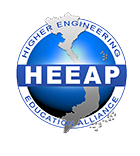Ho Chi Minh City, October 24, 2014 – Officials from Arizona State University (ASU) held a strategic partnership reception today to thank their partners in the Higher Engineering Education Alliance Program (HEEAP).
ASU has partnered with USAID and Intel Corporation to establish HEEAP in Vietnam in 2010. Now extended to 2017, HEEAP has attracted the participation of leading universities and colleges in Vietnam, including five top technical universities and three vocational colleges, with the goals of faculty development, leadership development and supporting female students’ interests in technical fields.
The reception marked the achievements gained during the program implementation. In attendance were Ms. Rena Bitter, the U.S. Consul General, ASU President Michael Crow, ASU professor Jeffrey Goss, director of HEEAP, and several other representatives of the program.
“I want to express our sincere thanks to our sponsors, industry partners and academic partners for their passion and active contributions to the implementation of HEEAP,” Crow said. “We believe this project will aid the development of education systems in the participating universities and colleges, and will spur innovation in education systems throughout Vietnam.”
Jeffrey Goss said HEEAP has had several successes to date. Already, some 219 lecturers from HEEAP universities have been trained in the U.S. and are working on projects to transform engineering education from a passive, purely theory-based instruction to active, applied and theory-based learning. In addition, many conferences, seminars and workshops have been convened to enhance leadership capabilities in the participating universities. Also, a program for female students’ interests in technical fields has provided 600 female vocational college students with scholarships from the program, Goss said.
HEEAP has been a key part of the U.S. Government’s support for higher education in Vietnam. It has allowed Vietnam’s universities and colleges access to the educational methods and systems used in the United States. The program is expected to expand in the coming years.

